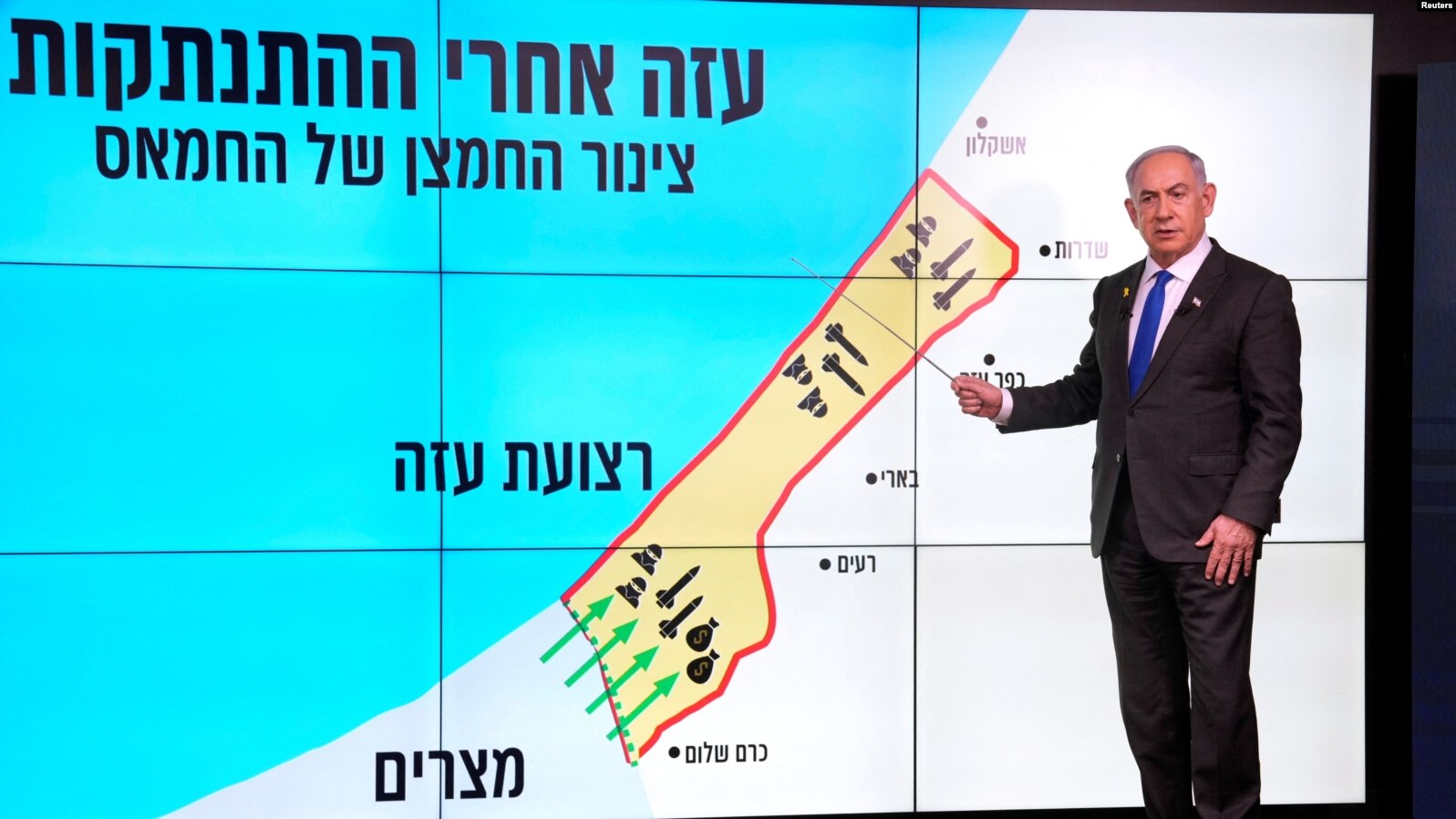Ah, Netanyahu with his trusty thin pointer, meticulously marking targets on a map of Gaza. It's almost like a twisted game of Risk, but with real lives at stake. If only solving conflicts were as easy as drawing lines on a map.
In a press conference that could only be described as a defiant stand against reason, Israeli Prime Minister Benjamin Netanyahu has once again prioritized military control over diplomacy, showcasing his alarming disregard for the lives at stake and the prospects for peace in the region. Netanyahu's insistence on maintaining control of the Philadelphi corridor—a strategic stretch along the Gaza-Egyptian border—has emerged as a major stumbling block to a potential ceasefire with Hamas, even as global and domestic pressures mount.
At a combative press briefing, Netanyahu, with a large map of Gaza adorned with clip art of bombs and missiles, declared that control over the corridor was a vital war aim for Israel. His rhetoric, reminiscent of a war-time propaganda campaign, framed this corridor as crucial to combatting what he described as the "axis of evil", a term that dismisses the complex realities on the ground in favor of simplistic villainization. This aggressive stance comes despite substantial criticism from both the international community and a growing wave of internal dissent within Israel.
US President Joe Biden, who has reportedly been working on a final ceasefire proposal with mediators, expressed frustration with Netanyahu's approach. Biden's administration, grappling with its own diplomatic challenges, has made it clear that Netanyahu's obstinate position on the Philadelphi corridor undermines efforts to secure a ceasefire, highlighting the prime minister's failure to make meaningful progress on this front.
Netanyahu's comments were made shortly after the tragic discovery of six hostages' bodies in Gaza, a development that has fueled widespread protests and a general strike within Israel. Tens of thousands of Israelis took to the streets, driven by outrage over the government's handling of the crisis and the fate of the hostages. The strike, though short-lived, reflected deepening dissatisfaction with Netanyahu’s leadership and his uncompromising stance.
Despite Netanyahu's apology to the families of the deceased hostages, his focus quickly shifted back to defending his strategic objectives. His framing of the Philadelphi corridor as "Hamas's oxygen pipe" reveals a disturbing willingness to sacrifice diplomatic solutions and humanitarian considerations in favor of military control. This position has been widely criticized as political spin, disconnected from the on-ground realities faced by those directly affected by the conflict.
The Prime Minister's rhetoric starkly contrasts with the views of Israeli opposition leaders like Yair Lapid, who have denounced Netanyahu's statements as detached from reality. The Philadelphi corridor, which has only recently emerged as a point of contention, was not part of the ceasefire plan previously accepted by Netanyahu's government.
The Hostage Families Forum, representing the voices of those still searching for their loved ones, has vowed to continue protests despite the early end of the general strike ordered by a labour court. The forum’s ongoing activism underscores the critical need for a shift in policy, as Netanyahu's intransigence continues to exacerbate an already dire situation.
In a broader context, Netanyahu's aggressive stance risks further isolation for Israel on the international stage, with the UK already suspending arms export licenses to the country. This diplomatic fallout highlights a growing global impatience with Israel’s handling of the Gaza conflict and its implications for regional stability.
Netanyahu's government, entrenched in its militaristic approach and fearful of losing the support of far-right coalition partners, appears unwilling to embrace a path toward meaningful negotiation. As public anger grows and international pressure mounts, the Prime Minister's refusal to reconsider his position not only jeopardizes the prospects for peace but also exacerbates the suffering of countless individuals affected by this ongoing conflict.

Commenti
Posta un commento